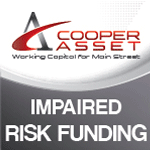Results 1 to 25 of 40
Hybrid View
-
09-13-2016, 01:21 PM #1Senior Member











 Reputation points: 10944
Reputation points: 10944
- Join Date
- Oct 2013
- Location
- New York, NY
- Posts
- 1,203
Id love to give you more accurate and detailed information, so please private message or shoot me an email. The fact remains that YSC provides a service and we make no apologies for providing such, having said that we have always been and will always be open to those that ask for information (personal requests)
-
09-13-2016, 02:35 PM #2Senior Member











 Reputation points: 24139
Reputation points: 24139
- Join Date
- Apr 2014
- Location
- Washington DC
- Posts
- 421
Andy, I'm just trying to understand how the math makes sense from two perspectives:
1) given the stated "low" default rate of 13% (relative to what you would expect for lenders charging those types of rates), what justifies charging the merchants that much? How does the market become more efficient so the products are properly priced so the risk-adjusted returns achieved by funders accurately reflects and prices the actual risk?;
2) explain how renewing (and double dipping) a cash advance at those rates is sustainable for a business, and won't ultimately kill the business -- the math makes no sense. I don't know of any clients in this market that are operating at a combination of margin and growth rate that is in excess of 600%. The one time deals are fine -- it's the renewals that are the problem. If you have the answers, I'd gladly speak with you off-line, but not sure what the "secret" sauce you'd be disclosing on this forum given that Isaac already has disclosed the default rate (and your deal stats are your deal stats and pretty consistent with other high risk lenders). My full contact info is in my signature.
Again, this isn't solely a YSC question, if anyone can defend this type of product with math, I'd love to hear it. Products structured like this are predatory (unless you can explain to me how they aren't), and threaten the entire market -- the small businesses that receive the capital, the 1st position lenders being stacked (with the stackers frequently turning their capital multiple times before the first position even recovers principal), and the reputation of the whole space if painted with a single, high risk cash advance brush.Last edited by Cfairbank; 09-13-2016 at 02:40 PM.
Carl Fairbank
Founder & CEO boldMODE
www.boldmode.com
Carl@boldmode.com
Founder & former CEO of Breakout Capital (sold to SecurCapital in 2019)
www.breakoutfinance.com
-
09-13-2016, 02:49 PM #3Senior Member











 Reputation points: 10944
Reputation points: 10944
- Join Date
- Oct 2013
- Location
- New York, NY
- Posts
- 1,203
I think the biggest issue is you are using numbers that are of your own making, and that is probably because most people aren't forthcoming ( even your so called A paper lenders) with the real cost of their money
Secondly, the renewal process of re-fi'ing a balance has been a long established practice.
Im not sure what answer your after, we provide a service just like any other business but it seems to me that some people love to play the "holy than thou" card while getting their hands dirty at the same time.
Don't get me wrong, our model isn't perfect but show me one that is and Im ready to poke holes in it
-
09-13-2016, 03:08 PM #4Senior Member











 Reputation points: 24139
Reputation points: 24139
- Join Date
- Apr 2014
- Location
- Washington DC
- Posts
- 421
You are welcome to pick numbers, and I'll run the same analysis -- More than anything, I am focusing magnitude here, but if you want to cut those annualized rates in half, you will still have a difficult argument to support (especially with double dipping) -- namely, how does the business support it and what are you in your practices doing to avoid creating debt traps? Regardless, I'm quite confident in the validity of your deal profile both from broader market intel and validated by the times we are stacked by YSC. Again, do a deal once and move on, you have a fine product. It's the cycling that is killer
But you are exactly right, no product is close to perfect and in no way am I playing the "holier than thou" card -- what I can do though is defend our business model, and in deals where we are higher priced, explain how our product is specifically designed to NOT create a debt trap -- again, it's no where close to perfect -- we can and will improve it. But there are also inherent issues in the space (i.e. stacking) that, until they are wiped out, will make products "worse" and higher priced throughout the market.
Last point, then we can take this offline if you want but no reason to keep beating a dead horse on a public forum unless you guys will go through the basic math exercise with me -- just because double dipping has been the "normal" practice since the beginning (and you are right, it has), doesn't mean it is a "good" practice. it's one of the most damaging practices in the space, especially on short term high cost capital. If lenders/advance companies don't regulate themselves and remove it from their products, the CFPB or another party will -- it absolutely is a massive (hidden) driver of debt traps -- the CFPB will have a FIELD DAY with double dipping.Carl Fairbank
Founder & CEO boldMODE
www.boldmode.com
Carl@boldmode.com
Founder & former CEO of Breakout Capital (sold to SecurCapital in 2019)
www.breakoutfinance.com
-
09-13-2016, 05:01 PM #5Senior Member











 Reputation points: 307559
Reputation points: 307559
- Join Date
- Jun 2015
- Posts
- 3,325
Similar Threads
-
Lender Recommendation
By Goliathfunding in forum Deal BinReplies: 15Last Post: 09-06-2016, 02:39 PM -
Lender recommendation
By Goliathfunding in forum Merchant Cash AdvanceReplies: 10Last Post: 07-11-2016, 09:58 AM -
Lender Recommendation
By Goliathfunding in forum Merchant Cash AdvanceReplies: 5Last Post: 07-07-2016, 06:22 PM -
Lender Recommendation
By Goliathfunding in forum Deal BinReplies: 4Last Post: 07-07-2016, 02:12 PM -
lender recommendation
By Goliathfunding in forum Merchant Cash AdvanceReplies: 3Last Post: 06-27-2016, 11:18 AM



 Reply With Quote
Reply With Quote















